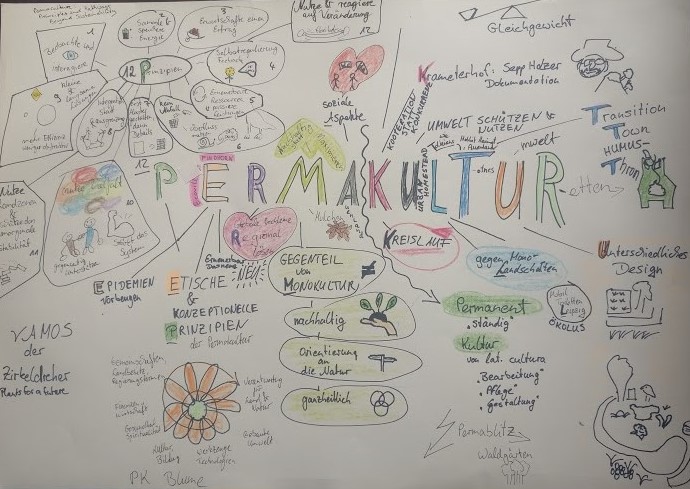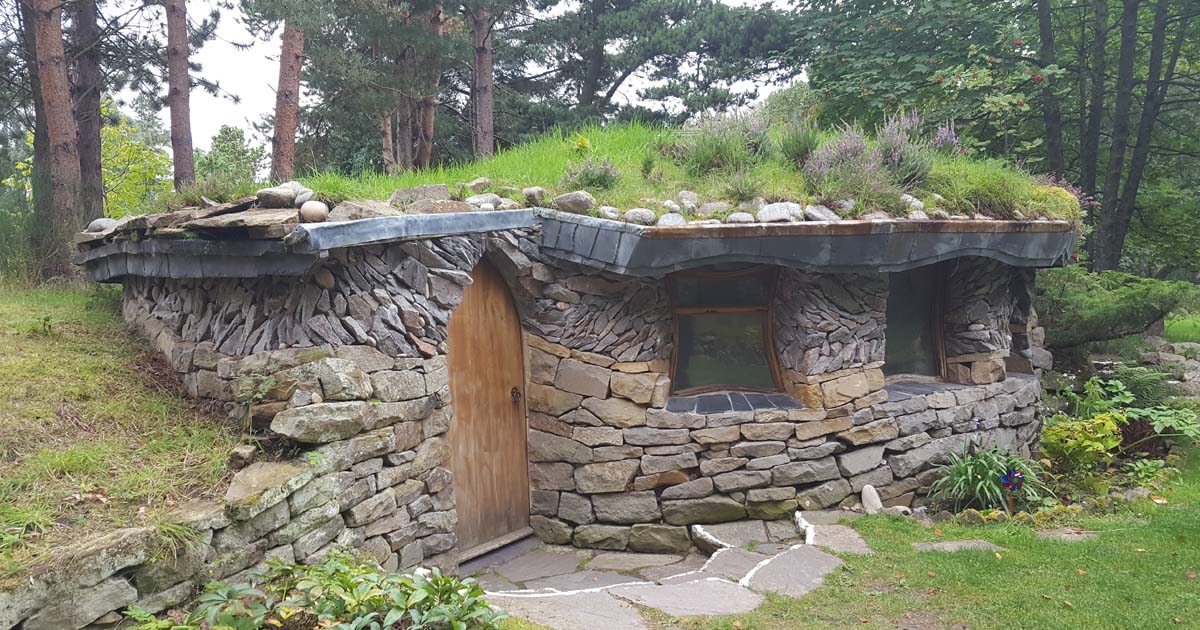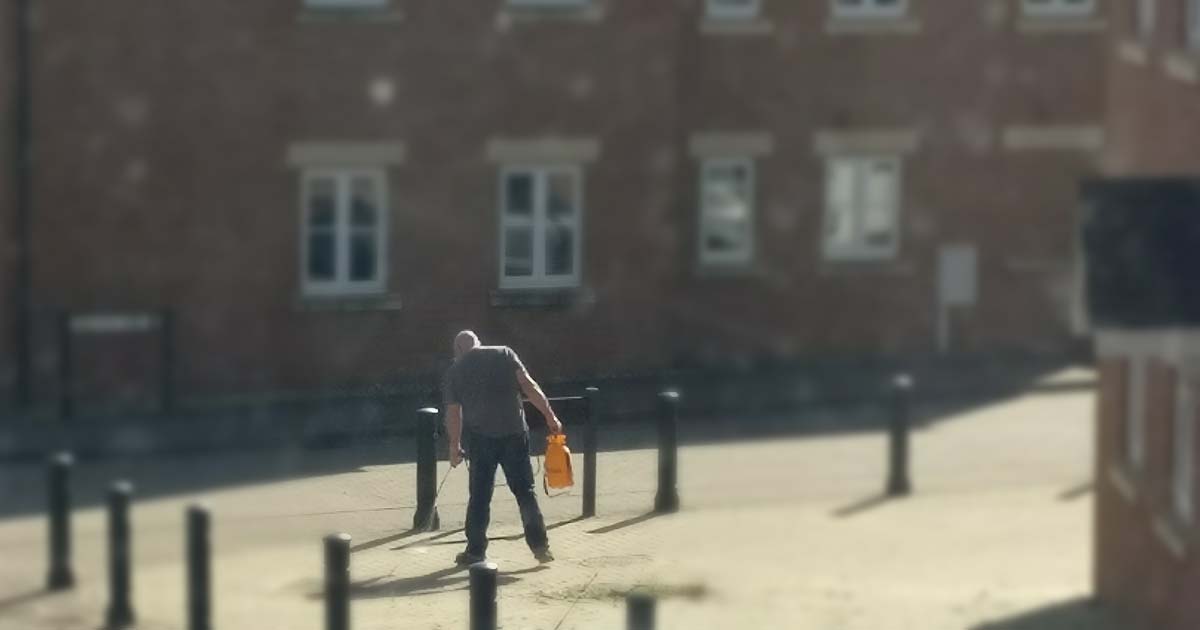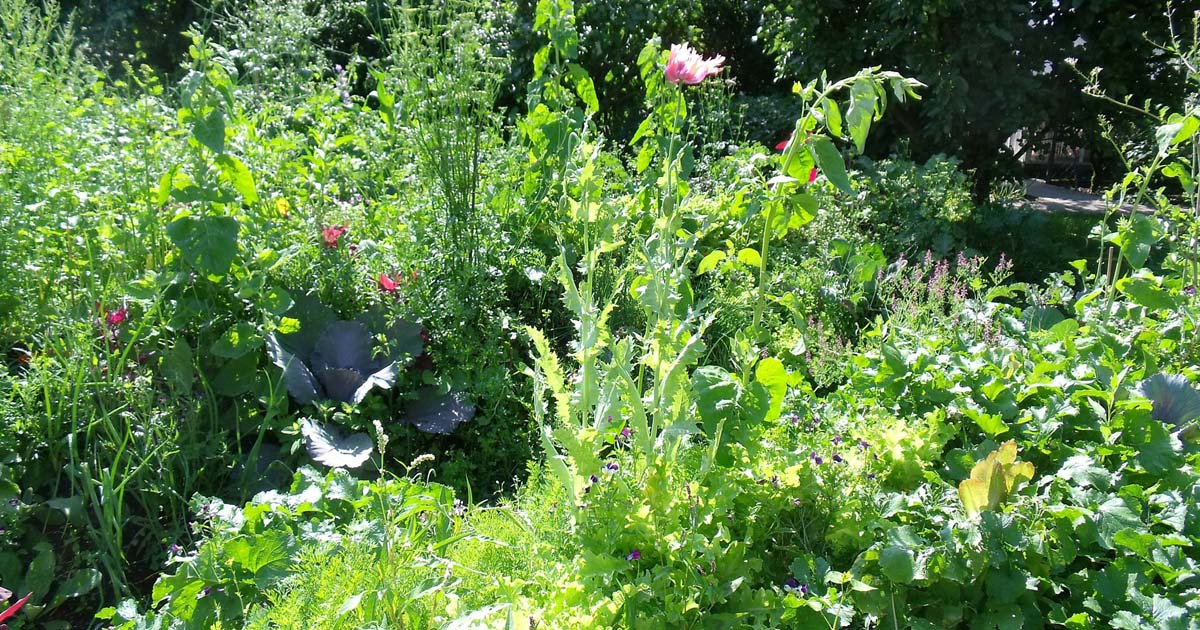Life sometimes takes on weird traits and when it has a fence post on the spot, it hits it hard, so that something gets stuck in any case. Recently I had another moment like this and the fence post was called Permaculture...bäm!
I must admit at this point that I am still far from being an expert in this field, as my topics have had different focuses in recent years, but I have stumbled over these fence slats some time ago. Permaculture has been slowly and steadily developing into a matter close to my heart that I would like to introduce to you.
This article is full to bursting with further links to informative websites and interesting articles and films. If you are interested in something burning, just click on the link. At the end of the article you'll find all links to the sources I used to research this article.
How to get Permaculture?
I have been going through a certain change with my small family for some time now and this has included the following complementary phases:
- Healthy nutrition
- Gardening
- Reduction of packaging waste
- Withdrawal from consumption
Was these always been topics we have dealt with, but they are taking up more and more space in our lives. The reason for this is that we ourselves want to take responsibility for ourselves, our child and our environment. Away from complaining, talking and moaning towards the knowledge of really making a difference.
In our environment, we are usually pioneers for conscious nutrition and try to eat balanced, healthy and mainly without meat consumption. We are flattered by the "Ah's" and "Oh's" and sentences like: "You live really healthy and I admire that you always do so much yourself". But we don't meet our own demands by far yet.
We sometimes tried some experiments with our diet, but we had a recurring problem - the shopping list often disturbs us. If we don't have a farm or a market around the corner, then high-quality products are often overly packed and regional fruit and vegetables are often not on the shelves or only too seldom.
We also like to experiment with exotic fruits, but in general we try to do without them. We avoid, if possible, foods that are transported further than necessary for our daily supply through all the countries of the world. Our credo in food procurement has always been:
1st rule - Regional reference
We had an organic farm nearby in our last home country and therefore easy access to fresh fruit and vegetables. Meanwhile this is unfortunately no longer so and we live in a very rural village, but the access to fruit and vegetables from the region is a bit more laborious and the daily shopping is sometimes a bit difficult for us again.
There are indeed farms in the area, but here I have the feeling that I'm not doing my environment any favours either, if I sometimes drive across the pampas with the car.
Our previous experiences with our own garden in recent years have always been quite ok, but for some years now when exchanging ideas with other green sparrows we have been complaining more and more that snails are regularly depriving us of our yields and we too are desperate of our slimy little friends at times.
So my list of excuses why our efforts don't make any sense and the courage to make an effort somehow faded with each new demand on ourselves was extended.
Too expensive, too time-consuming, too few results, too little influence. This may be how many people feel who try to live "well" and sustainably and maybe that's why there are so many people who don't believe that it works any other way.
But then it came to an interesting chain reaction. A multitude of actions, each worth their own stories, repeatedly drew my attention to the term permaculture to solve (my) "problems" in a slightly different way than simply fighting them.
As I mentioned at the beginning, many things have kept me from dealing more closely with permaculture in recent years. One of them is called "brain-friendly learning", after a friend has made me aware of Vera F. Birkenbihl Ϯ.
When I started my contribution on permaculture, I tried one of the techniques mentioned there and visualized the following associations with the term permaculture.
Tada, my first KaWa.

The Din A3 leaf was full within shortest time and the variety of permaculture was impressive and is full to my taste. The huge influence on our environment, in the most positive sense, I want to explain a little and some basic ideas and approaches and hopefully inspire a few readers for this idea.
sustainable instead of maximizing - solve global problems locally
But permaculture is more than just "a little gardening". As I delved deeper into the subject of self-sufficiency, I came across the project Urban Homestead at some point. So much yield, on so few square meters I have so far considered impossible. This project, as much as it impresses me, has a catch for me personally. It is extremely complex and requires a lot of effort. Nevertheless, it shows impressively what is possible in the smallest space, if you like.
A quote remains in my head ever since:
"Right from the start I knew that we had to take care of our own food, because food gives you power. Frankly, I believe that food cultivation is one of the most threatening occupations in the world, because you run the risk of being released..." - Jules Dervaes, founder of Urban Homestead
Factually, Jules is quite right, because besides air for breathing and protection from environmental influences, there is only one thing we humans always need: food.
In many western countries you don't get much of this necessity anymore. All you have to do is go through a supermarket and it seems that everything is there in abundance. Only perfect looking products are put into the shopping basket, everything else usually ends up in the tonne at the end of the day. "Optimally" at least in organic waste. I also don't want to go further into finished products. However, I dare to claim that in Germany about 80 percent of people have almost completely lost touch with food. Even worse it looks possibly with children and young people of these days, who grow up in the surrounding field of the ultimative food and luxury food availability each day, to nearly each time. There are some problems that result. One of them is dependency.
An idea of the problem of it one can hunger in the Arte documentations! & thirst! get. A show that moved me very much - absolutely recommendable.
If you look around in Germany, people in Germany seem to be better off than ever before. In almost no other country is food as cheap as here. In other countries the situation is quite different. Hunger is not a problem of yesterday, it still exists today.
But these days most foods are distributed by huge food companies with enormous sales figures. If one of these megacorporations stumbles, millions of people will suddenly be affected and it won't even take a shortage of food itself, like the documentary series Hunger! & thirst! is impressively revealed. This dependence is an enormous risk factor for the preservation of peace, this must become clear to everyone. Our current agricultural economy is based on the principle of maximisation. I do not know what point of maximisation we are at at the moment and I find it difficult to assess it sufficiently. At this point, however, I would like to enumerate a few things that this maximisation has brought us so far, both positive and negative, although I am not sure I would describe some of the achievements as positive. Therefore form your own judgement:
- Efficiency in harvesting, partly fully automated processes. Huge fields that can be planted and harvested within a very short time (monocultures)
- Less physical labor and machine support
- Genetically "optimized" plants
- control of so-called "pests" and wild herbs by various agricultural poisons as Glyphosate or Neonicotinoide
- At the moment very cheap food
- Almost all types of food available in supermarkets at almost every season of the year
- Food of consistently high quality and uniformity
- leached out soil
- Groundwater pollution
- ...
I could continue writing here, but I would like to give you the opportunity to continue thinking where I started. Who at this point comes to the result, so it can not go on, I invite him now cordially on the search for a paradise to go.
We need a paradise, no, many paradises! Permaculture as an alternative to monoculture
Permaculture is about symbioses and not about control. As someone who is pretty upset with his kidneys when "lawn care" is being carried out around the clock and the originally planned quiet afternoon falls victim to the noise of the lawnmower warriors (not to mention the army of leaf blowers in autumn), I can give the idea of permaculture further encouragement at this point.
The reason for this is that permaculture aims to achieve the most diverse yield possible with the least possible effort. Ideally, the system regulates itself. Maybe this can never be completely achieved, but even if one were only close to it, the last garden phobic should take a step into the green, or better yet, create his own green paradise.
Permaculture is about sustainable and long-term environmental design. This is called design with orientation to nature. What is meant by this is to design the environment in such a way that it is diverse, or to be more precise, biodiverse.
Permaculture began in agriculture. It was the alternative to monoculture.
"Permaculture is the creation of small paradises here on earth." - Bill Mollison
Permaculture consists of the combination of the terms "permanent" and "agriculture" and means permanent agriculture. The Australian Bill Mollison justified this term. He also received the alternative Nobel Prize for the "Vision of Permaculture" in 1981.
Sepp Holzers Krameterhof is an impressive experiment on how permaculture can look like and the documentation about his project shows what problems monoculture brings with it and what solutions nature has to offer with the application of permaculture design.
Permaculture is no longer just agriculture. In the meantime, social aspects have also been included in the term and the names of the big siblings of permaculture are as follows: Transition Town, Ecovillage or Earthships and are much more than just organic horticulture.
In the following I would like to deal with the living space and the social component of permaculture, but first a small question:
Haven't you ever dreamed, like a hobbit, of living in a cave in the Shire?
Permaculture Housing and Living
The Shire from the well-known books of J.R.R. Tolkien and the meanwhile cinematic Lord of the Rings, or in particular the so-called Hobbit Houses, come to my mind again and again when I deal with permaculture. The structural planning of such a building, inserted into the earth with the window facing the sun, has many advantages over the usual construction of modern houses and even more so over apartment blocks. Did you know that such buildings are a reality today and are even built from recycled materials? It should not go unmentioned that the construction costs can also be significantly lower than with conventional houses, not least because of the recycling. I recently passed one of these houses, but unfortunately I missed renting it. How about a holiday in Hobbit House in Scotland.

I just felt a bit ironic writing these lines when I suddenly got the following picture from the office window:

Concrete care in the neighbourhood. The unloved "weed" must be destroyed with the chemical club. Is this a sign? This is an example of how we humans often erase the last bit of nature around us during this time. Only maybe a little sympathy remains for a rubber tree in the living room.
If you imagine that life could be a beautiful thing like a hobbit, then you should immediately deal with the topic Earthhouse.
There are several different approaches to building ecologically sustainable houses. Probably the most comprehensive example is the Earthship. It is a construction method that follows the form of energy. A so-called Earthship is above all energy-efficient and ideally completely self-sufficient. In addition, the "new" Earthship is an integral part of the environment and does not displace it.
"Imagine a house that heats itself, supplies its water, produces food. It doesn't need expensive technology, recycles its own waste, has its own energy sources. It can be built anywhere and by anyone, from things our society throws away." Michael Reynolds - Inventor of the Earthship
Why Sch****n are we actually on drinking water?
We now come to a topic about which people don't like to talk, although angry people like to throw this word around. Isn't it cynical towards people who don't have enough access to drinking water that it is reality with us that we casually said daily on drinking water Sch****n?
Our highly praised WC, which helps us to protect against diseases like the plague, is somehow practical for us, but for years I haven't had a clear conscience when I press the flush button of a WC. And because we don't usually have anything to do with our Sch***e anymore, we only talk about excrements, if at all, full of shame...at least until something falls on our feet.
"Ouch, damn you... !!!"
Now I may have recently persuaded myself that the "only" alternative plump toilet (chemistry/stank/hygiene problem) is a better solution, but here too the idea of permaculture has long since given us another solution with the Humus Thron, or the Compost Toilet.
There are actually no more excuses and honestly I was deeply shocked not to have heard about it a long time ago and I only recently came across it.
Now, life does not only include eating and living, and well, the other ?, but also togetherness. Let's take a look at it now.
Community in Permaculture - Diversity and togetherness apply here as well, instead of one-sidedness and competition
Permaculture lived, also means to provide diversity and synergies in human interaction and promotes the community welfare. In stark contrast to the usual life model of the 21st century, with the dominating economic model of capitalism, in which competition is the only option and it is assumed that the market will ultimately regulate itself. Even the well-known alternative socialism has not turned out to be the solution to all evils in the past.
I don't want to start a debate on this controversially discussed topic at this point, but I think we can no longer ignore the negative effects resulting from it. If you still want to see where we are right now, click hier.
Permaculture as a life model, on the other hand, is systemic thinking and is confronted with the needs-based thinking of the market economy.
p>This means that permaculture looks at interdependencies and interdependencies across different themes. Higher-level systems such as society and the global world are also included in the planning, while the current market economy refers to the fact that problems are regulated again by the market through the consumer. But there is one big problem. The consumer does not behave rationally as necessary, but rather according to his heart. A book as empty as it is entertaining is "Thinking helps but does not help" by Dan Ariely.
Lived in permaculture, this then looks like creating social spaces and treating different abilities equally. Every single ability is welcome and appreciated. Albert Einstein once said something not so stupid about this...
"Everyone is a genius, but if you judge a fish by its ability to climb a tree, it will believe its stupid all its life" - Albert Einstein
What are we going to do?
I admit, after about 2500 words in this article I could have killed one or the other reader with information meanwhile. And I could and wanted to write much more here. To be honest, some other people have already worked out so much about this topic that it makes no sense to continue writing here.
I hope I didn't beat you to death with this topic so far, or let you get lost in the labyrinth of the WWW, but created motivation to get started immediately and design it myself.
May I make a wish of yours?
If I could wish for something from you, then it would be: Start something!
Show interest and openness to this topic and think about what you could do to immediately implement the philosophy of Permaculture for yourself. I am convinced that permaculture can contribute something to every need and maybe we can save the world in this way.
Maybe a Permablitz, or Utopia Lightning something for you!?
Adé and goodbye
I am staying with my family on our change and I hope I have made you curious. Here you will find the first places to go for information and networking, but don't get lost in research, it's much more important: make it easy!
Sources
Quellen
http://www.permakultur.farm/
http://www.permaculturevisions.com/difference-between-organic-gardening-and-permaculture/
http://www.permakultur.ch/
https://reset.org/knowledge/urban-gardening-mit-gaerten-die-welt-veraendern
https://zdi.jimdo.com/zd-projekte/zd-garten/
https://www.permaculture.org.uk/

